With the Ukraine-Russia war in its fourth year, Ukraine’s allies in recent weeks have considered tapping one of the most enormous war chests in modern history: the roughly $300 billion in frozen Russian central bank assets held abroad.
But would such a move be legally viable and politically feasible?
What’s happening with Russia’s frozen assets and sanctions now?
Immediately after Russia’s invasion of Ukraine in 2022, Western allies imposed the most extensive sanctions in modern history on Russia. But they haven’t had the desired effect. “Sanctions, even when they’ve imposed economic costs on countries, haven’t necessarily led to political success,” Duke University professor Bruce W. Jentleson told The Dispatch.
Indeed, according to Jentleson, despite dealing a substantial economic blow to Russia, sanctions have done little to alter its trajectory since, which is why Western governments may consider leveraging Russia’s frozen central bank assets.
Approximately two-thirds of the $300 billion in immobilized Russian central bank reserves, nearly $200 billion, is held at Euroclear, a Belgium-based central securities depository. Holding around $21 billion of Russia’s frozen assets, France manages much of the remaining amount in the European Union. The United States holds $5 billion. All the assets themselves remain frozen, but in May 2024, the European Union approved plans to use the interest earned on the assets to support military aid and reconstruction in Ukraine.
This move intensified debate over whether seizing all the assets should be next. Supporters argue that such a move is justifiable under international law and urgently needed. At the 2025 Munich Security Conference in February, a bipartisan group of U.S. senators—Republicans James Risch and Lindsey Graham, and Democrats Jeanne Shaheen and Sheldon Whitehouse—called on the Trump administration and G7 allies to unlock the full $300 billion in frozen Russian sovereign assets and redirect them to support Ukraine. “Vladimir Putin must pay for his brutal invasion, and Russia’s own assets are an appropriate way to give brave Ukraine the support it needs to fend off his murderous aggression,” they said in a statement.
Critics, however, warn that confiscating sovereign assets could set a perilous precedent that threatens the stability of the international financial system. Vanderbilt Law professor Ingrid Brunk told the Associated Press that international law has long protected the inviolability of sovereign assets, a principle she describes as “absolutely sacrosanct for a century.”Violating it could destabilize one of the few remaining pillars of the global financial order, she insisted.
What are the legal hurdles to seizing Russia’s frozen assets?
The fact that multiple countries, including all G7 members, have their own laws and legal constraints that could affect the seizure of Russian assets presents a challenge for doing so.
Under customary international law, the principle of sovereign immunity generally protects sovereign assets. As a result, officials in Belgium—which holds the majority of Russia’s frozen assets—and EU legal advisers have expressed strong reservations about seizing all Russian state funds. Belgian Prime Minister Bart De Wever told reporters seizing the funds currently deposited in Belgian institutions would be “an act of war,” posing “systemic risks to the entire financial world system” and likely triggering retaliation from Moscow. “We’re not living in a world of fantasy,” he said. “We’re in the real world, where if you take 200 billion euros from somebody, there will be consequences.”
In contrast, in 2024, the U.S. Congress passed the REPO Act (Rebuilding Economic Prosperity and Opportunity for Ukrainians Act), which grants the president authority to confiscate Russian sovereign assets located in the U.S. and repurpose them for Ukraine. Even though the REPO ACT outlines a legal avenue for action, neither the Biden nor the Trump administration has invoked it.
“Some courts with limited jurisdiction over aspects of Russia’s conduct, such as the European Court of Human Rights,” may provide a separate legally defensible basis for asset redirection, UC-Davis School of Law professor Chimène Keitner said in an email to The Dispatch.
But President Donald Trump’s vacillation in talks with Russia and Ukraine suggests the U.S. doesn’t yet have a coherent strategy for the war, according to Keitner. “Current turmoil at the U.S. State Department and within the Trump administration does not bode well for a thoughtful, calibrated, and coordinated approach to potential asset seizure, or to any international crisis,” she wrote. “At one point, it looked like the administration was siding with Russia, although the U.S. position seems to depend on who last upset the president. It’s therefore not surprising to see the EU taking the lead on several initiatives.”
How real are the risks of seizing Russian assets?
One of the most immediate geopolitical concerns is the risk of Russian retaliation. Kremlin officials have repeatedly denounced the idea of asset seizure, calling it illegal and threatening “serious legal consequences.” Moscow could theoretically target the estimated 1,800 Western companies still operating in Russia. Legislation passed earlier this year grants the Russian government sweeping powers to confiscate assets of U.S. companies and individuals to compensate for any Russian assets confiscated in the U.S. Although there may be less value left to seize—foreign companies have already lost about $170 billion since 2022 for moving their businesses out of Russia—the political messaging would be potent.
Beyond Russia, the far-reaching consequences of any asset seizures may affect other countries like China. Beijing could grow more cautious about holding reserves in Western financial institutions and begin offloading European sovereign bonds in response. Such a move would likely raise borrowing costs for debt-laden governments across the EU.
Still, proponents of asset seizure argue that the risks are manageable and the stakes too high to ignore. “International lawyers have needlessly complicated a straightforward legal issue,” Yale law professor Harold Hongju Koh said to The Dispatch. “Russia launched an illegal war. Why should it get to keep the money it used to destroy another country?”
He and others point to the international law doctrine of countermeasures, which allows otherwise prohibited actions, like the suspension of legal protections, as a lawful response to grave violations. But not all legal scholars believe the case for countermeasures is so straightforward. University of Virginia Law professor Paul B. Stephan agrees that Russia’s actions are egregious, but he cautions against using countermeasures to justify irreversible confiscation. “It’s not simply that you’re lifting sovereign immunity,” Stephan told The Dispatch. “You’re taking property—irreversibly. And there’s a difference between a temporary measure meant to prompt compliance and permanent confiscation of sovereign assets.”
Stephan argues that violating the principle of sovereignty to punish a violation of sovereignty raises concerns. “International law must remain law, not just a tool for when we feel justified,” he explained. “Even when the moral case is clear, the real challenge is responding without undermining the laws we claim to defend.”
Koh rejects concerns that the precedent would erode sovereign immunity globally. “That’s a way overbroad argument. You only pierce sovereign immunity if a country has committed massive aggression and atrocity. If a country hasn’t done that, it won’t face this risk.”
Koh asserts that his concern is not the precedent of seizing Russian assets, but the precedent set by not taking action. “It sends the message that a country can invade another, commit atrocities, and then hide behind legal protections meant for law-abiding states.”
What comes next?
Meanwhile, some U.S. lawmakers are weighing other alternatives. A sanctions bill introduced earlier this spring by Graham and Sen. Richard Blumenthal, a Democrat, would impose sweeping secondary sanctions on Russia’s trading partners and allies.
Some legal scholars, like UVA’s Paul Stephan, have proposed using banking law principles, such as the right of offset, to make those frozen funds available without triggering the legal and geopolitical risks of outright expropriation. “Countries that hold Russian reserves essentially owe Russia a debt,” Stephan told The Dispatch. “But Russia also owes a legal duty of reparations to Ukraine. You can offset one against the other.” According to this reasoning, the U.S. and EU could loan funds to Ukraine, secure those loans with Ukraine’s reparations claims, and then offset them against frozen Russian assets.
All the scholars The Dispatch spoke to agreed on one thing: $300 billion won’t be enough to rebuild what’s been destroyed in Ukraine. “Ukraine’s reconstruction will cost much more than Western countries could realistically confiscate,” Keitner said.
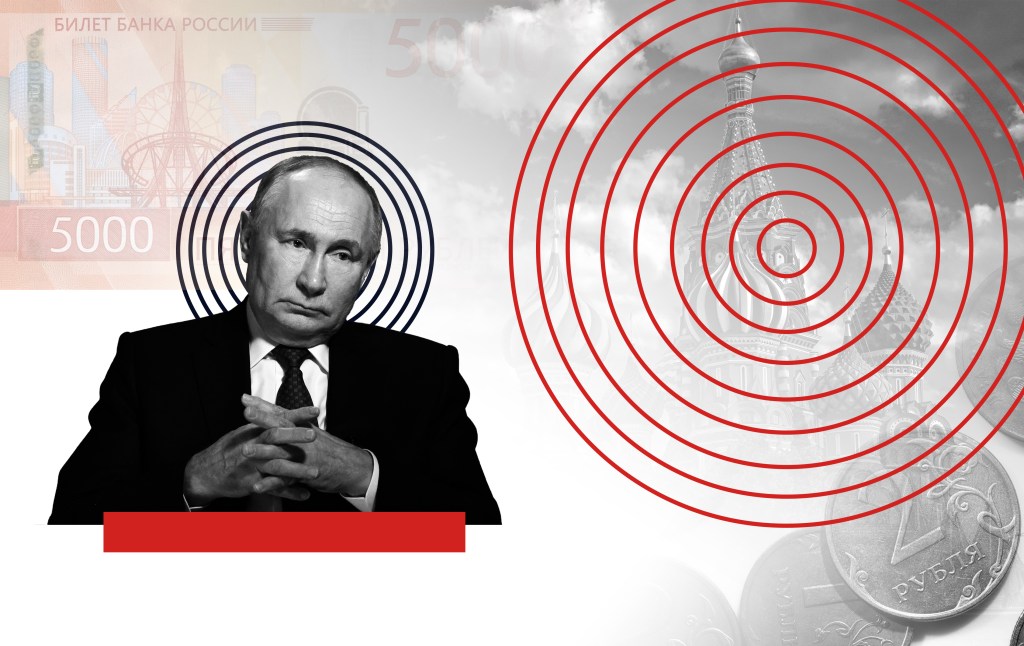
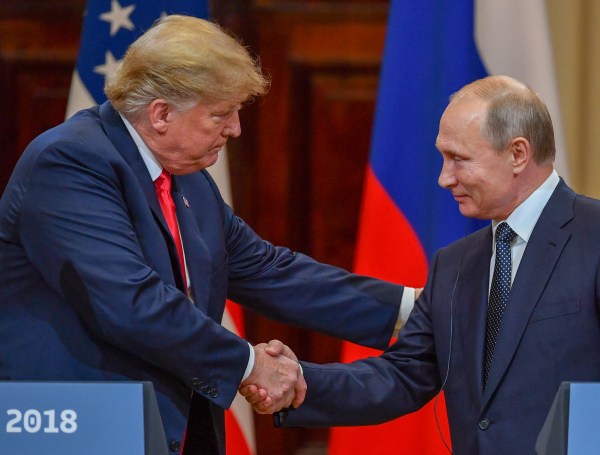
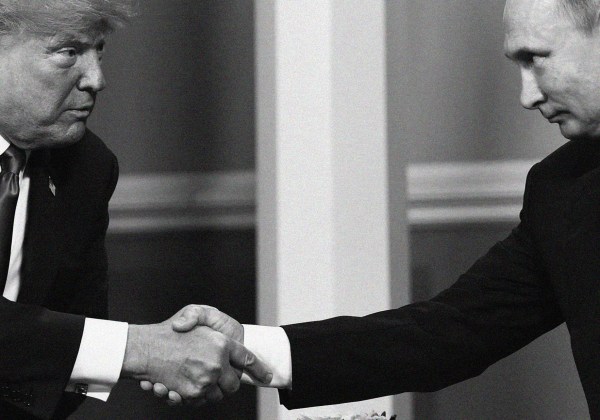

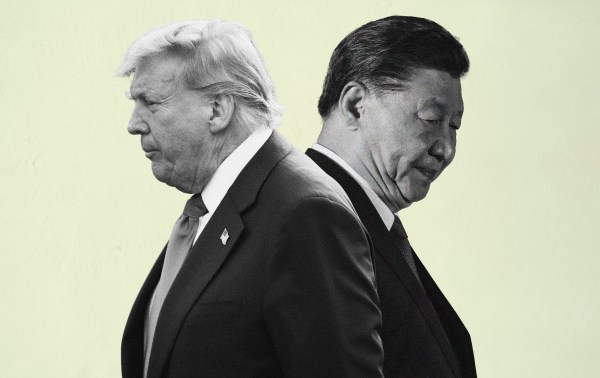


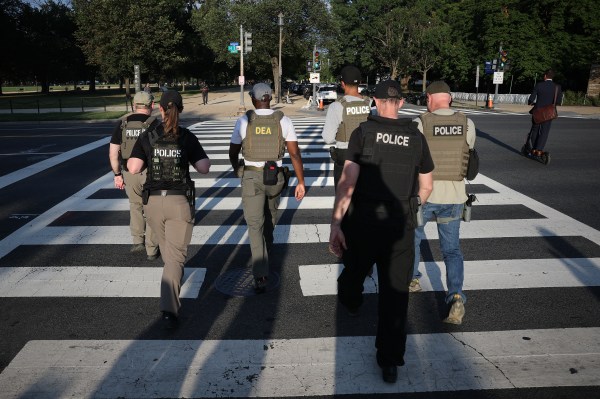

Please note that we at The Dispatch hold ourselves, our work, and our commenters to a higher standard than other places on the internet. We welcome comments that foster genuine debate or discussion—including comments critical of us or our work—but responses that include ad hominem attacks on fellow Dispatch members or are intended to stoke fear and anger may be moderated.
With your membership, you only have the ability to comment on The Morning Dispatch articles. Consider upgrading to join the conversation everywhere.